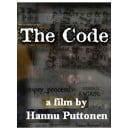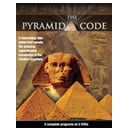
Cracking the Colour Code
 An unprecedented global journey to explore the frontiers of how we view color, make color and use the power of color to communicate meaning. Color is a fundamental part of our world. Landscapes, animals, fashion, painting, movies, food – everything around us resonates with the language of color. All our waking lives – and even in our dreams – we navigate our way through a world of color. Yet, whoever we are, color has the power to stop us in our tracks – and to make us wonder.
An unprecedented global journey to explore the frontiers of how we view color, make color and use the power of color to communicate meaning. Color is a fundamental part of our world. Landscapes, animals, fashion, painting, movies, food – everything around us resonates with the language of color. All our waking lives – and even in our dreams – we navigate our way through a world of color. Yet, whoever we are, color has the power to stop us in our tracks – and to make us wonder.
Why is the sky blue? Why do leaves turn yellow in autumn? And why does red play so powerful a role in so many cultures? Is color real or is it just a construct of our brains?
Drawing on the latest scientific findings and technology, Cracking the Color Code is a series for people who are seeking answers to many of the questions that relate to color and who, at the same time, wish to enjoy the incredible diversity and sensation that color has to offer in our world. While color is a child of science and physics, it triggers within us a host of emotional, intuitive and intellectual responses – deeply rooted within ourselves and our culture.
The series is both food for the intellect and the senses – delivered as a carefully arranged and orchestrated feast, yet one that is playful and provocative.
Based on three years of extensive research, Cracking the Color Code draws on a range of disciplines and leading experts – including physicists, neurologists, artists, ethnologists, color consultants, historians, artisans and marketing executives – each in some way intimately concerned with the nature and power of color. Each offers insights – even new discoveries – that will challenge our understanding of color.




thats fine i found it somewhere else
As a lover of Art History and Anthropology, this was a fun and interesting watch, thanks Vlatko!
It's clear to me that light waves exist, and pigments exist (at least as much as anything else in the universe does), but that our eyes and brains are unique and process these things in a way that is unique to human beings. Even amongst humans, we can perceive colors radically differently depending on culture. I don't mean psychologically either, I mean that some cultures can see more clearly the differences in subtle shades of green than others, for instance. Anyway, yay for Vlatko and yay for color!
Sweet! one of my pet topics. Thanks Vlatko.
Since the color spectrum I detect is somewhat "Out of phase", I'll refrain...
Not color blind, something else.
In fact, I'm a lot more sensible to tones of greens but poorly to reddish oranges.
Which brings problems with red lights...
They choose the wrong color!
Pierre.
Color is radiation... they call em Photons. This is really just Electro-Magnetic energy that hits our eyes. Our eyes then send the signal influence to the Brain ...and finally the BRAIN interprets the result. The different colors simply represent various vibrations. One color vibrates at a lower or fast rate from one color to the next. The reason most non-color blind people agree that Green is Green is because through evolution the humans that saw and could agree that fruits and animals and skys were the same color to them simply allowed for communication and agreement when pin pointing what one human was trying to say to the other... if we all saw Green as a different image in the mind then we could not form tribes and so on...
Google 'Feynman Seeing lecture' on for a better explanation.
color is real! to propose otherwise is for the quack realm of mystical egocentric solipsistic philosophy